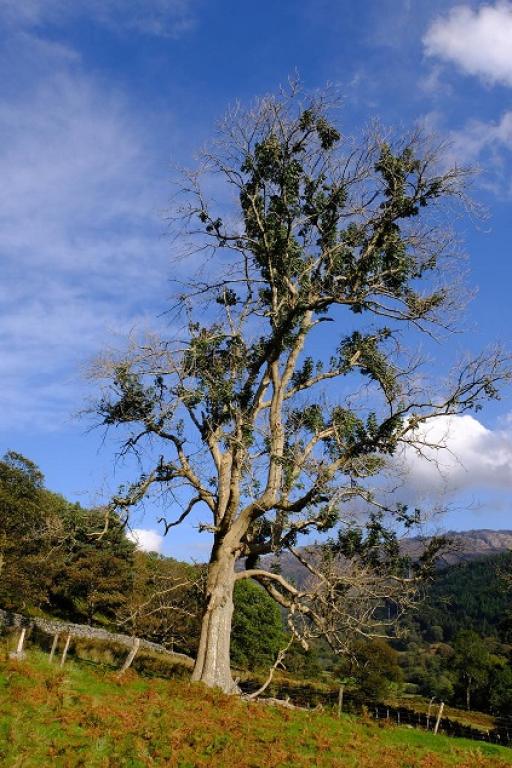
Cumberland Council is alerting residents of the disease Ash Dieback (also known as Hymenoscyphus fraxineus), that is affecting some trees within the Cumberland area.
Ash Dieback affects Ash trees (Fraxinus ssp.). It is the worst tree disease since the Dutch Elm outbreak in the late 1970s, which effectively wiped-out mature Elms from the British landscape. It is predicted that within the next decade, up to 90% of all Ash trees across the UK will be affected, leading to significant tree removal.
Infected trees can become brittle, posing a safety risk as they may fall or shatter without warning, which requires the use of heavy machinery for removal to maintain the safety of the operative undertaking the works.
The fungal infection has spread extensively across the UK, with no known cure. Once a tree is infected through its leaves or twigs, the progression of the disease varies, but it can eventually kill the tree. As Ash trees are a dominant species along roadsides in Cumberland, the removal of infected trees is expected to significantly alter the local landscape over the coming years. The impact of Ash Dieback will likely persist as the infection spreads and continues to weaken already infected trees.
Young trees are particularly vulnerable and may die within a couple of years, mature trees usually take longer to succumb to the disease. Additionally, large trees affected by Ash Dieback and secondary fungal infections can become hazardous well before they die completely.
The council’s tree specialists have been surveying Cumberland’s Resilient Road Networks, (most As, some Bs and C roads) to gather data and record where Ash trees are and what level of infection they are showing. This information helps to prioritise any action required, such as felling, maintenance or further inspections.
Cumberland Council is looking to extend these surveys over the coming years so that all of the road networks will be surveyed, and this will continue until all trees have been managed. Cumberland Council is actively engaging with parish and town councils, as well as members of the public who own Ash trees near public highways, that are infected and potentially hazardous. This proactive approach will help the landowner to organise appropriate companies to manage the infected trees, to ensure it does not become a risk to other people or property, and the council is actively hoping that landowners with Ash trees will start to manage them on their own.
The council is assuring the public that tree removal is considered a last resort, aligning with the council's policy, which directs removal only in cases where the tree is dead, dying, diseased, or dangerous. Consequently, only trees meeting this criteria will be removed.
For more information about the disease and how to spot it, please go to the Woodland Trust website.
If landowners have received a letter regarding felling Ash trees and need more assistance, please either go to our website or contact Cumbria Highways on 0300 373 3736.
Cumberland Councillor Denise Rollo, Executive Member for Sustainable, Resilient and Connected Places, said:
“The news of Ash Dieback, a situation beyond anyone's control, is very sad. Our focus now lies in carefully assessing affected trees and ensuring informed decisions are about any that may have Ash Dieback. Ash trees are one of the most prominent trees in gardens, fields and hedges, and we now need urgent action by the owners of infected trees to ensure they don't become a danger to people or property.
"All trees should be regularly inspected by a qualified arboriculturists. For owners of Ash trees, familiarising oneself with the symptoms of the disease is crucial for prompt intervention. We recommend visiting the Woodland Trust website, which offers comprehensive resources on identifying and addressing Ash Dieback.
“Our priority is public safety, and I would like to thank members of the public, town and parish councils who own ash trees, for their cooperation in addressing this issue by removing infected trees."
